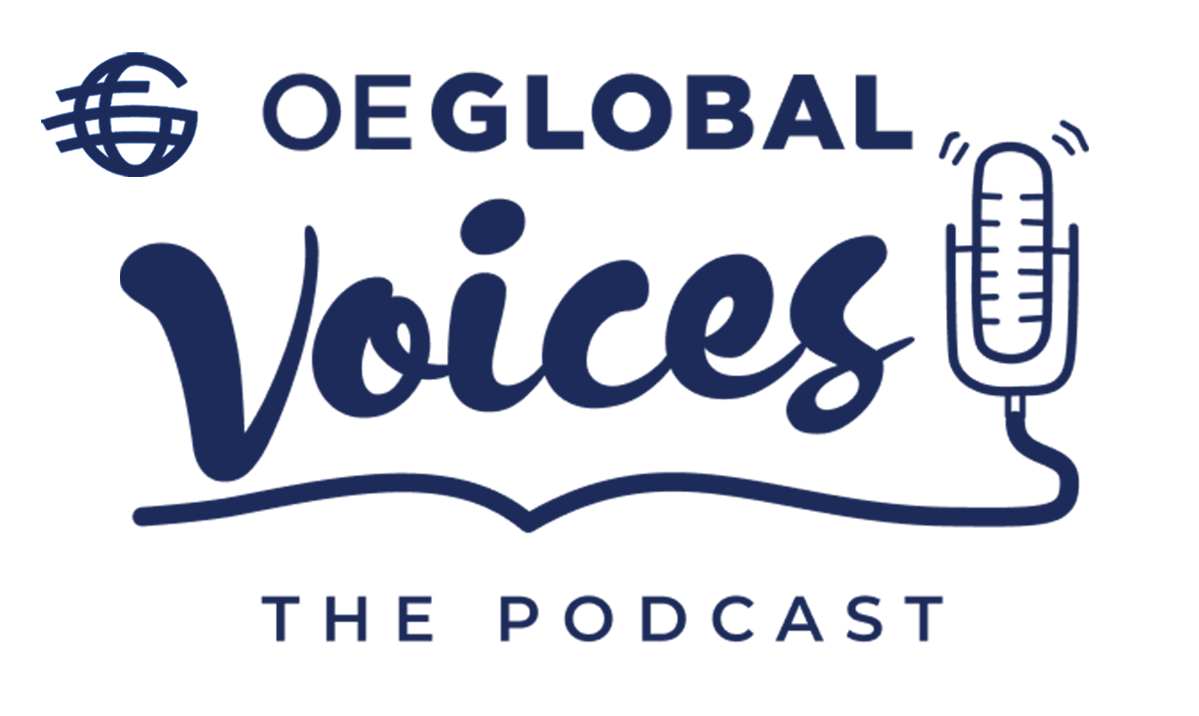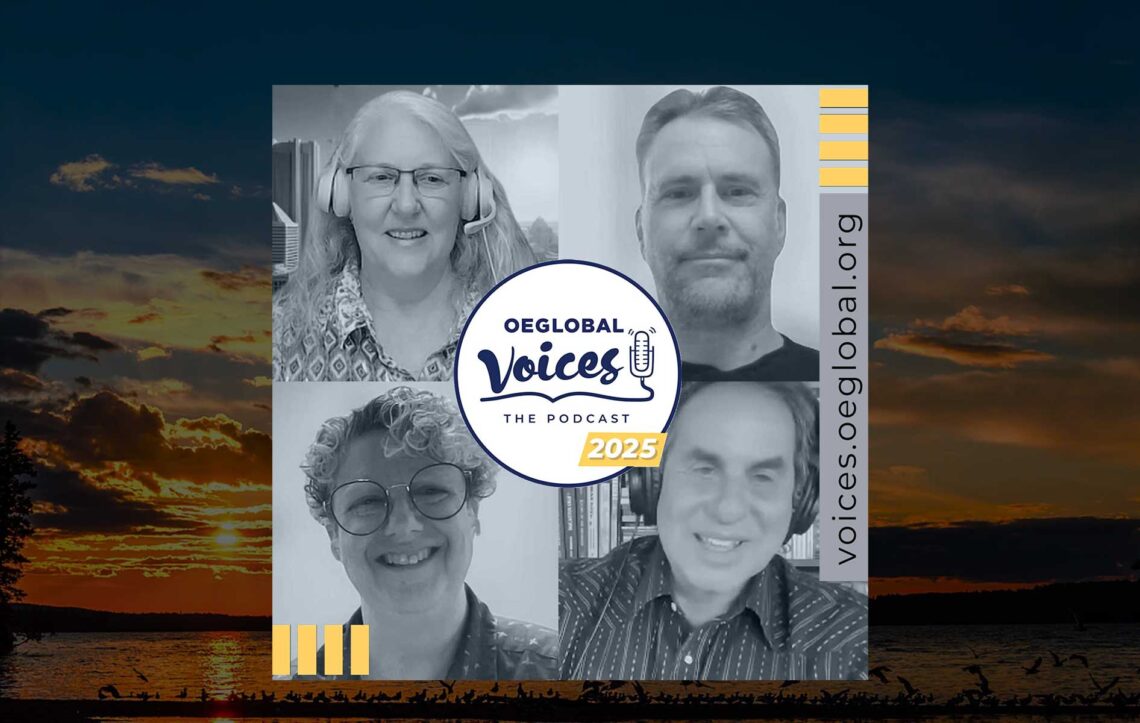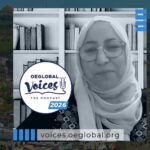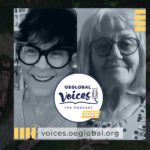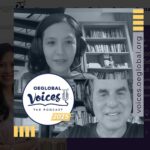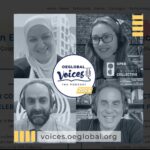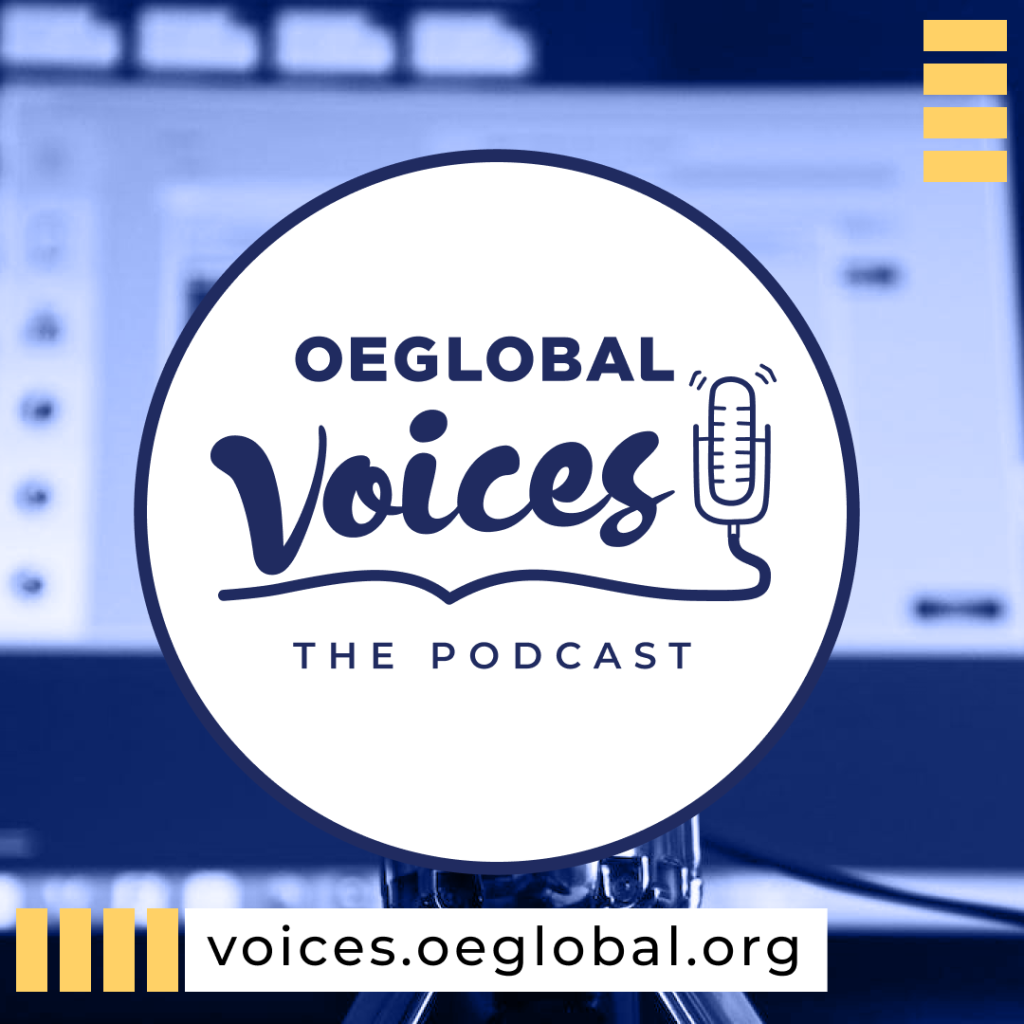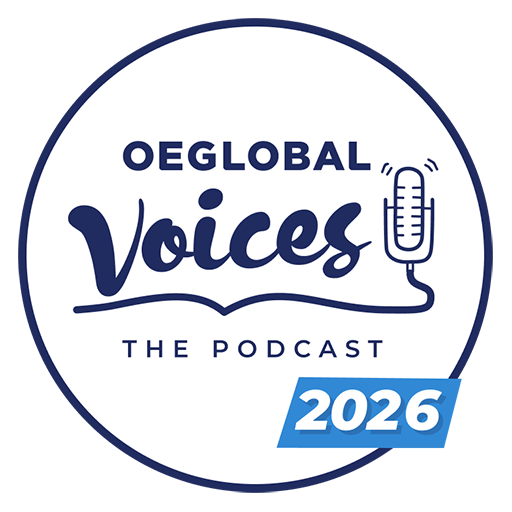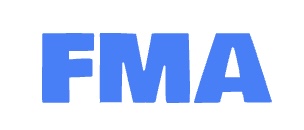As another episode in our series of regional perspectives on Open Education we bring you voices from a place of wide open skies and landscapes, the Canadian province of Saskatchewan.
Joining us is Heather Ross (University of Saskatchewan), Kelly Burke (Saskatchewan Polytechnic), and Shuana Niessen (University of Regina) who share how these three primary institutions of higher education in the province joined together to create SaskOER, Saskatchewan Open Educational Resources.
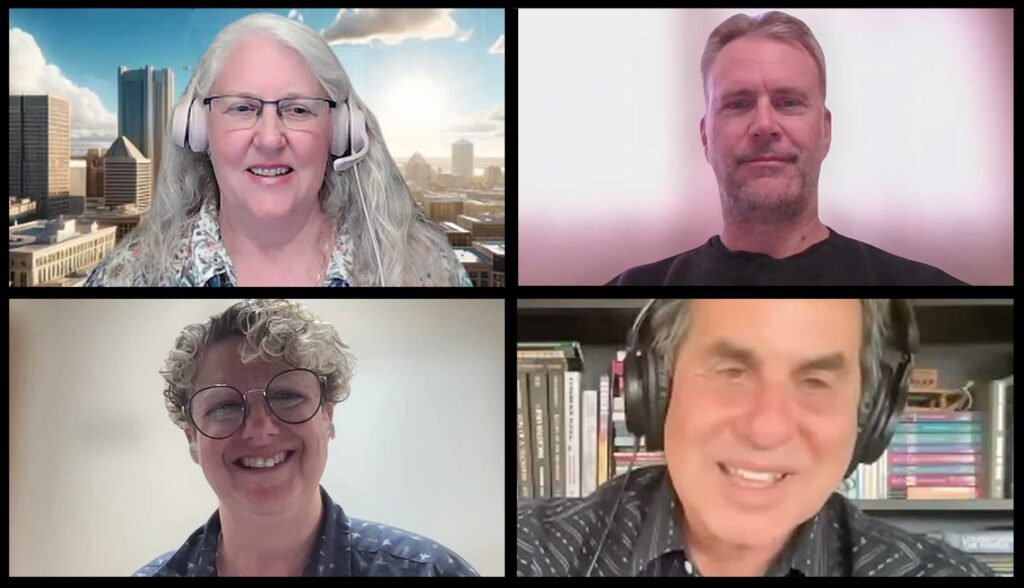
You will learn the drivers for and the successes of open education at each of the organizations, how they will leverage this cooperation on SaskOER to expand their reach, and some of the future possibilities.
Tune in to learn more about the places and spaces of openness in Saskatchewan, it’s much more than only prairies.
Podcast: Play in new window | Download
at Descript.com
In This Episode
FYI: In the spirit of experimentation as well as transparency, this set of show notes alone was generated by the AI “Underlord” in the Descript editor we use to produce OEGlobal Voices.
In this episode of the Open Education Global podcast, host Alan Levine explores the collaborative efforts in Open Education across Saskatchewan’s major institutions: the University of Saskatchewan, University of Regina, and Sask Polytechnic. Guests Kelly Burke, Shauna Niessen, and Heather Ross discuss the benefits and challenges of implementing Open Education Resources (OER) and open pedagogy in their institutions. They also highlight the new SaskOER collaboration, aiming to create a unified, province-wide repository of educational resources to benefit students and educators. The conversation covers various topics, including the grassroots nature of the initiative, its implications for social justice and equity, and the potential for future growth and wider institutional participation.
- 00:00 Intro Music and Highlighted Quotes
- 01:06 Welcome to the OE Global Voices Studio
- 01:27 Exploring Open Education in Saskatchewan
- 02:42 Meet the Guests: Kelly Burke
- 03:45 Meet the Guests: Shauna Niessen
- 05:37 Meet the Guests: Heather Ross
- 07:30 Personal Educational Journeys
- 18:58 Open Education at Sask Polytech
- 23:30 Open Education at the University of Regina
- 24:51 Engaging Professors in Social Justice
- 25:50 Challenges and Adaptations in Open Textbook Creation
- 27:20 Celebrating Open Textbook Adoption
- 29:55 Introducing SaskOER
- 30:31 The Evolution of Pressbooks Hosting
- 31:44 Collaboration and Future Visions for SaskOER
- 37:22 Regional Colleges and Open Educational Resources
- 42:05 Showcasing Open Pedagogy Projects
- 47:30 Personal Reflections and Closing Remarks
(end of AI generated show notes)
Additional Links and Quotes for Episode 85
And I think that’s what SaskOER, has done. It’s a single instance of Pressbooks being hosted by Pressbooks in Montreal where all of our open textbooks are, you can still go in and search by an institution or you could search or browse the entire catalog. But it’s not just a site because we’ve come together as a consortium to make decisions about the site, but also to talk about Open in the province.
Heather Ross
I think there’s a lot of potential too for the regional colleges. Logistically supporting a regional college with access to resources… you have to send textbooks or through interlibrary loans, you’re sending physical items. There’s a little bit of work and a lot of money involved in that.
So maybe getting away from– and as a librarian I should never say this– physical books and items might help mitigate those issues… . So more Open Educational Resources will, I think, help them actually maybe feel more integrated with those bigger centers.
Kelly Burke
- SaskOER (Saskatchewan Open Educational Resources)
- Open at University of Saskatchewan
- Gwenna Moss Centre for Teaching and Learning
- USask Community Plays Major Role in Creation of OER (10th year anniversary)
- Open at Saskatchewan Polytechnic
- Open at University of Regina
- Open Education Bootcamp 2024
- Cree Dictionary of Mathematical Terms with Visual Examples and Sound by Arzu Sardarli and Ida Swan
- First Nations University of Canada
- Open Education Alberta
- Places, people and more mentioned
- Saskathewan Buttes (The Saskatchewan Border)
- Qu’Appelle Valley (Tourism Saskatchewan)
- Great Sand Hills (Wikipedia)
- South Saskatchewan River (Wikipedia)
- Emma Lake (Wikipedia)
- Saskatchewan Jazz Festival
- Darrion Letendre Keynote (OEGlobal 2023 conference)
- Kristin Hannah (author mentioned by Shuana)
- Better Me Podcast (Heather Ross)
We have a lot of professors who are interested in social justice and if I could just get them to see [OER], then they would realize that this is what they need to be doing and getting involved with.
But also I’m starting to realize that less emphasis on the learning objects and more on what does this license free people to do in their classrooms. These open practices that are student centered that really livens things up. And we’re talking a lot about academic integrity and authentic assessment .
Shuana Niessen
Our open licensed music for this episode is a track called Prairie Mountain by Ryan Andersen that is licensed under a Creative Commons Attribution-NonCommercial license. Like most of our podcast music, it was found at the Free Music Archive (see our full FMA playlist).
The background art on the cover is a Wikimedia Commons image Seagulls on sunset flying over the Waskesiu Lake in Prince Albert National Park Saskatchewan, Canada.jpg by Viktor Burkus shared under a Creative Commons Attribution-Share Alike 4.0 International license.
